Business & Management
EfD Hosts Policy Dialogue on Energy Efficiency and Reduced Emissions: Hoima Residents Call for Expanded Access to Clean Energy
Published
2 years agoon
By
Jane Anyango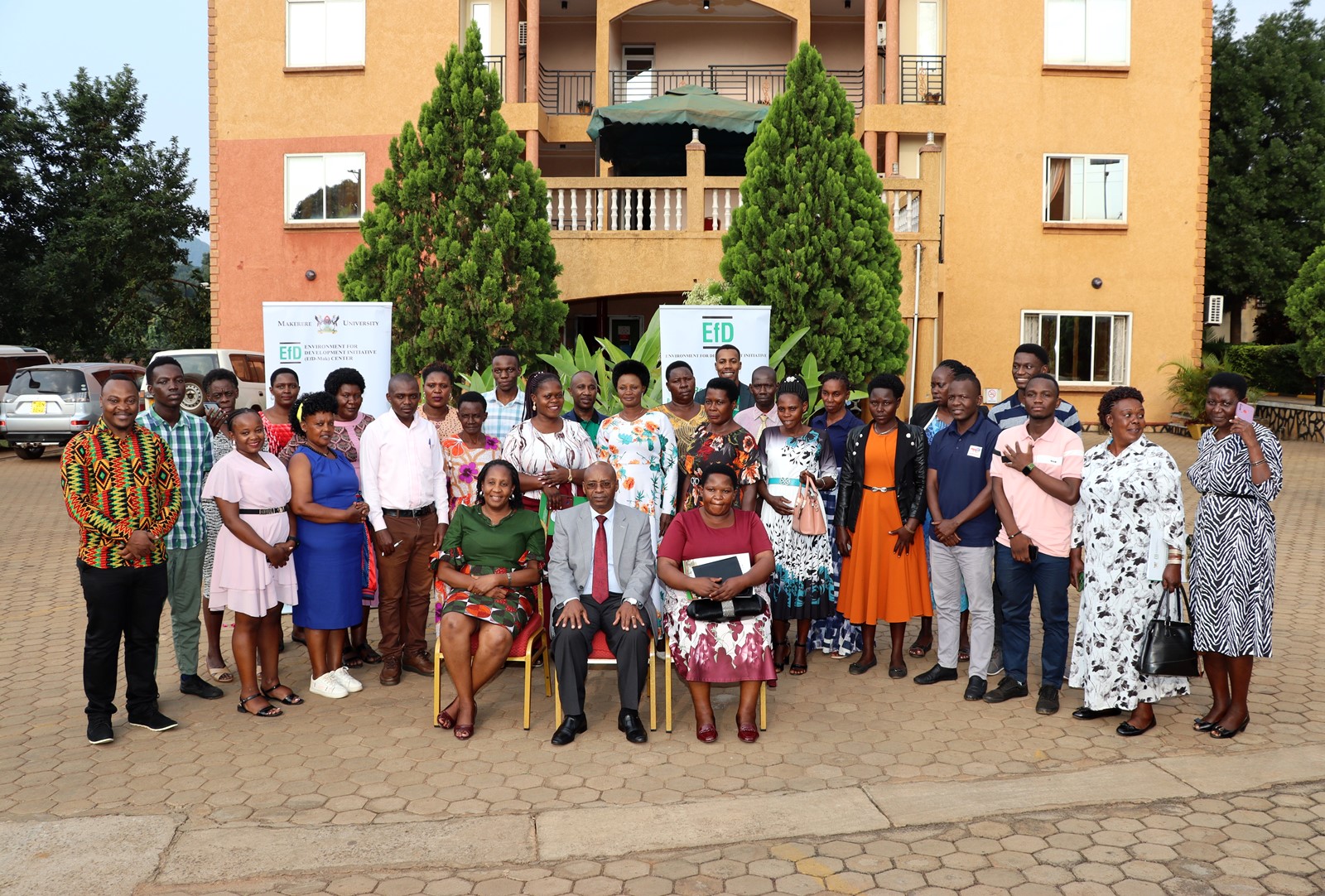
Hoima, July 18, 2024 – Stakeholders from Hoima’s local government, private sector, and civil society organizations have urged the government to expand access to clean energy sources like electricity and LPGs to facilitate the country’s transition from biomass and achieve its green growth strategy. Despite Uganda’s capacity to generate and export electricity to neighboring countries, access and affordability remain significant challenges for rural areas and a large portion of the population.
During a policy dialogue hosted by the EfD-Mak Center in Hoima, themed “Energy Efficiency and Reduced Emissions in Uganda: Facts and Prospects,” stakeholders highlighted the necessity of addressing these challenges. The event, part of the EfD Annual Meeting, gathered district local government officials, both technical and political, as well as academia, youth, and members of the private and civil society organizations.
In his opening remarks, Prof. Johnny Mugisha, Deputy Director of the EfD-Mak Center, emphasized the importance of holding the dialogue in Hoima due to the region’s developments in energy. “The energy we are talking about includes firewood, charcoal, petroleum, electricity, and many others. We deliberately chose Hoima because of the energy developments here, and we are looking forward to petroleum-sourced energy,” Mugisha explained.
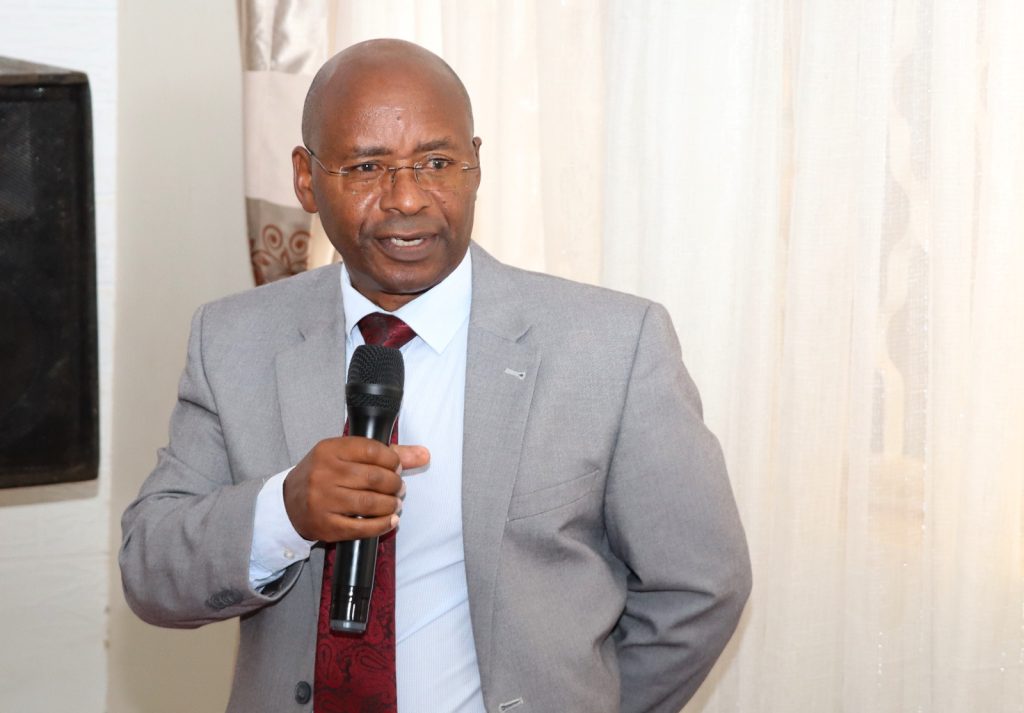
He noted the slow and long-term transition from biomass to cleaner energy sources, underscoring the need for discussions around biomass and clean energy. “Energy efficiency means how much you get from the energy you use to achieve a result, for example, how much electricity you use when cooking matooke,” he said. “This dialogue is a roundtable discussion for us all to give our input on what is causing what and how best to sustainably use the environment as we transition to clean energy sources.”
Prof. Mugisha stressed the university’s commitment to promoting such dialogues across the country. “Our intention is to get the root causes right from the grassroots communities so that together we can propose solutions to inform policymakers for decision-making and implementation,” he concluded.
Uganda’s Path to Energy Efficiency and Reduced Emissions: Key Insights from Dr. John Sseruyange
In his presentation Dr. John Sseruyange highlighted the critical role of energy efficiency and emission reduction in transforming Uganda from a peasant society to a modern, prosperous nation, as envisioned under Vision 2040.
“Energy acts as a catalyst that drives all other sectors,” stated Dr. Sseruyange. With agriculture contributing to 71.7% of employment, the mechanization of Uganda’s economy and the expanding transport sector are significantly increasing fossil fuel and biomass usage, leading to heightened carbon emissions and deforestation.
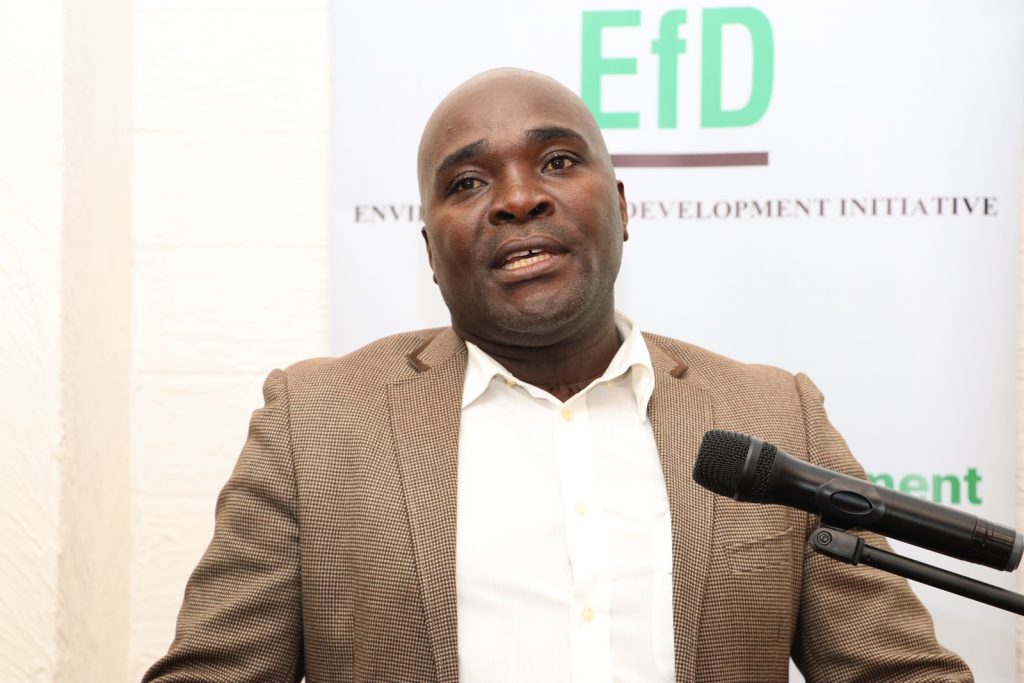
Dr. Sseruyange warned of the dangers of biomass reliance, noting that Uganda’s forest cover has decreased from 24% in 1990 to 9% in 2015 due to tree cutting for firewood and charcoal. “The rapid rate of forest depletion is alarming,” he said, emphasizing the health and environmental impacts of biomass fuels, including air pollution and associated diseases.
The presentation highlighted that women and children, especially girls, are disproportionately affected by biomass fuel collection, which hampers productive activities and schooling. “The burden of wood fuel collection falls heavily on women and children,” noted Dr. Sseruyange.
Dr. Sseruyange identified several barriers to energy transition in Uganda, including weak implementation capacity, cultural preferences, and limited accessibility to affordable and reliable clean energy. He pointed out that only 42% of the population had access to hydropower by 2021, and many clean energy systems, such as LPG, remain unaffordable for small businesses.
Addressing governance, Dr. Sseruyange explained the complex interplay of institutions involved in promoting efficient energy systems, ranging from the Ministry of Energy and Mineral Development to international organizations like the World Bank. He stressed the importance of household and industrial capacity in adopting new technologies.
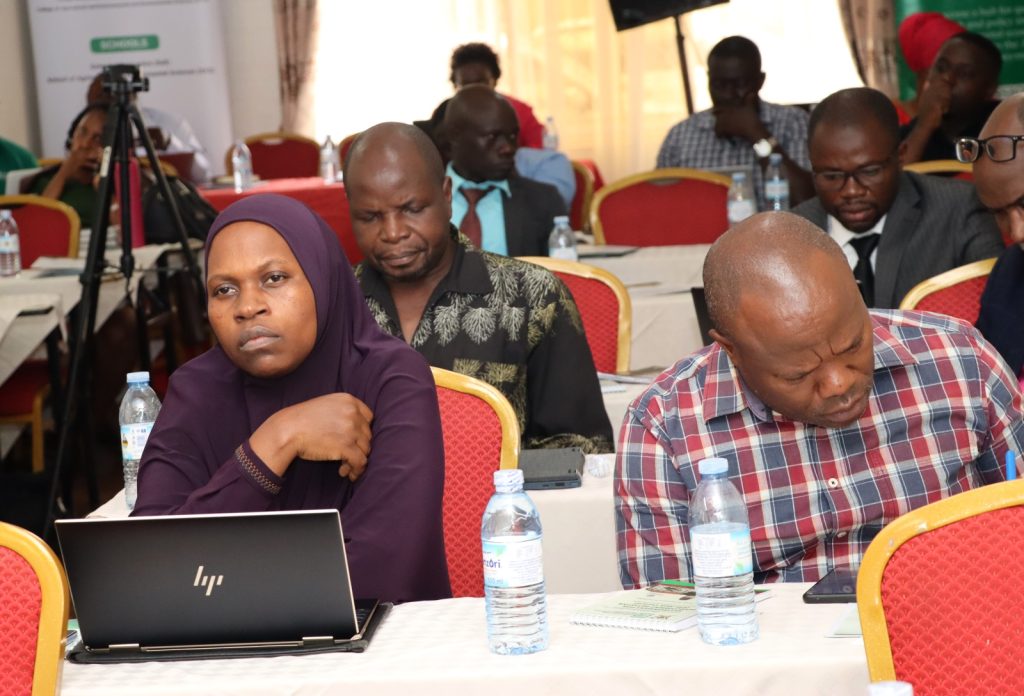
Despite these challenges, Dr. Sseruyange outlined several promising initiatives aimed at enhancing energy efficiency and reducing emissions. Vision 2040 focuses on upgrading industrial technologies to less energy-consuming alternatives. The National Development Plans aim to increase clean energy accessibility and promote efficient cooking technologies. The Uganda Green Growth Development Strategy emphasizes low carbon development and solar energy installation.
Additionally, Uganda’s hydropower capacity has increased from 1278.6 MW in 2019/20 to 1370.8 MW in 2021/22, demonstrating improved energy generation capacity. Solar energy expansion efforts have resulted in off-grid solar installations reaching 30,000 households, with several solar PV plants contributing over 65 MW. The Clean Cooking Supply Chain Expansion Project has sold 72,535 energy-saving stoves by 2020. Furthermore, the government is aiming to distribute 1 million subsidized LPG cylinders to promote cleaner cooking technologies.
Dr. Sseruyange also highlighted the establishment of Kiira Motors to produce electric vehicles and the development of highways and non-motorized transport systems to reduce urban traffic congestion and emissions. “The government is taking significant steps towards a sustainable energy future,” he concluded.
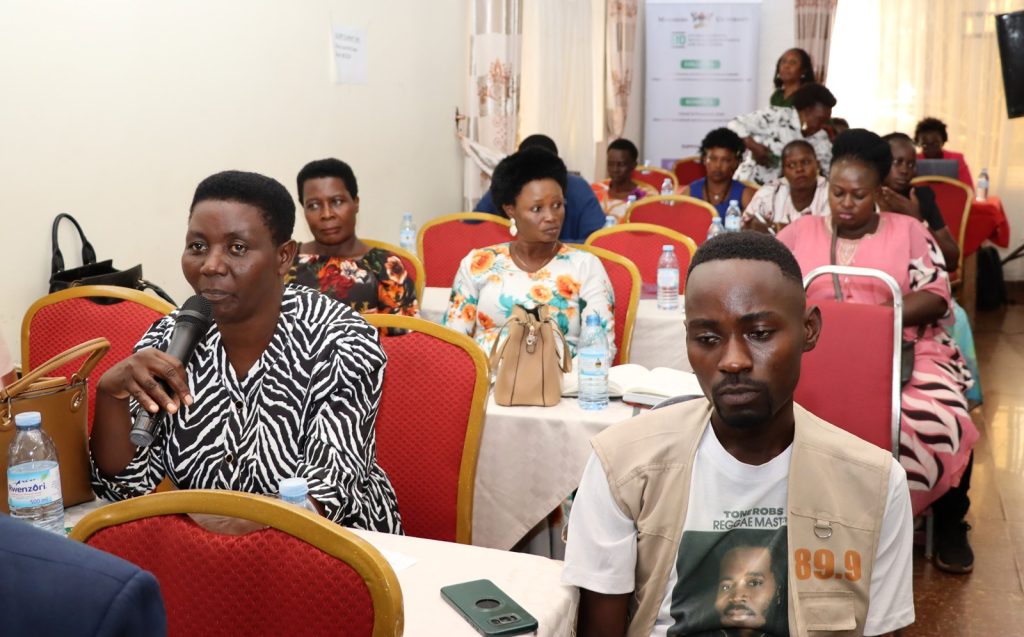
In closing, Dr. Sseruyange called for policy and regulatory reforms, public awareness campaigns, and rigorous assessments to promote energy transitions. “How can we, as a nation, collaboratively promote energy transitions?” he posed to the audience, urging collective action from government, NGOs, and the general public.
Participants React
During the plenary discussions, several interventions were proposed to enhance the transition to green technologies. Highlighting the negative environmental impacts of high school dropout rates.
Participants noted that many youths turn to activities like bricklaying, charcoal burning, and sand mining for survival, which harms the environment. They called for public education and awareness programs to address fears and cultural biases against new energy technologies. “Education on the benefits of using these technologies is crucial,” said Harriet the district natural resources officer.
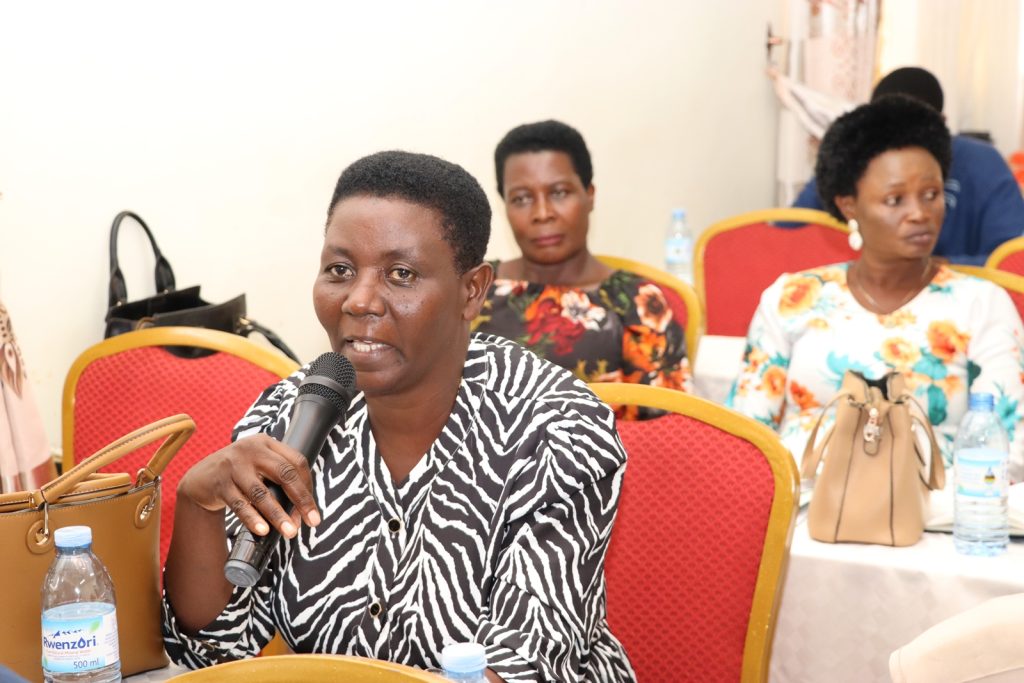
Affordability of new energy sources was another major concern, with high initial costs and refilling expenses for LPGs making them inaccessible for many rural poor.
Participants also highlighted the problem of low-quality counterfeits sabotaging payment schemes for acquiring new technologies, calling for regulation to address quality standards.
Cultural perceptions that clean cooking energies are for the rich and lazy further hinder the transition, underscoring the need for continuous public sensitization, which they stressed should be physical.
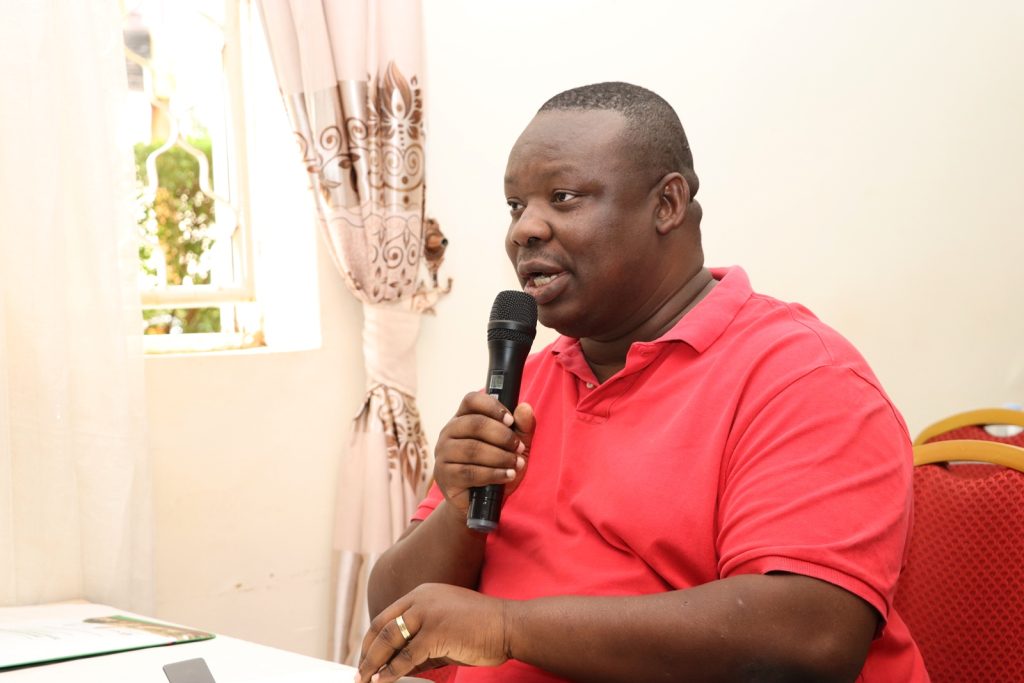
Limited budgets for local governments and weak enforcement mechanisms were also cited as barriers to implementing clean energy programs. Participants proposed subsidies for manufacturers and consumers of clean energy sources, expanding access to electricity and LPGs in rural areas, and ensuring widespread availability and awareness of green technologies.
Hoima District Leadership Decries Effects of Indoor Pollution
The Vice Chairperson of Hoima District, Hellen Namulumba, raised concerns about the severe effects of indoor pollution on the community’s health.
Closing the policy dialogue, Namulumba appreciated the organizers for addressing these critical issues, noting that many lives have been lost due to ignorance about the dangers of indoor pollution.
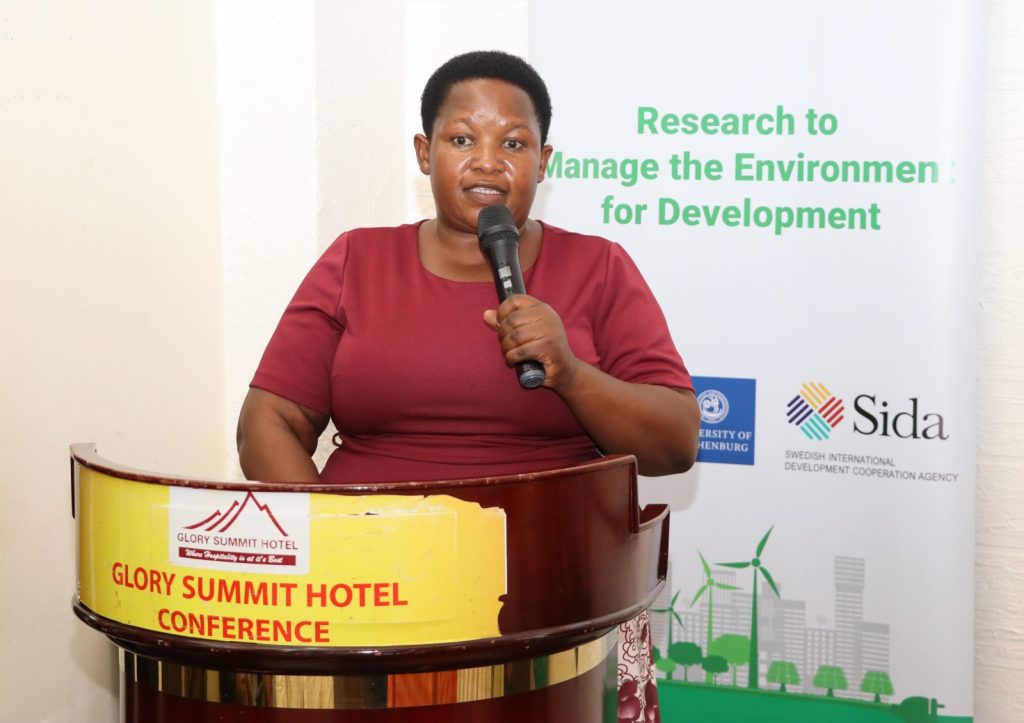
“There is no single woman in the village who would wish to continue cooking on firewood but they are incapacitated. They can adopt to other energy sources like electric and gas cockers”, she stressed
Namulumba highlighted the increasing cases of cancer, associating the disease to the use of biomass. “It is my prayer that we conduct many of these engagements at the grassroots level, bringing on board sub-county political leaders,” she said.
She called for government intervention to reduce indoor pollution by extending power coverage to rural areas beyond 50%, reducing power unit costs for domestic users, and ensuring consistent power supply. “If government can intervene, indoor pollution can reduce. If government can extend power coverage to rural areas beyond 50% and reduce the cost of power units for domestic users and ensure there is consistency in power supply, I think our people can enjoy this country,” Namulumba stated.
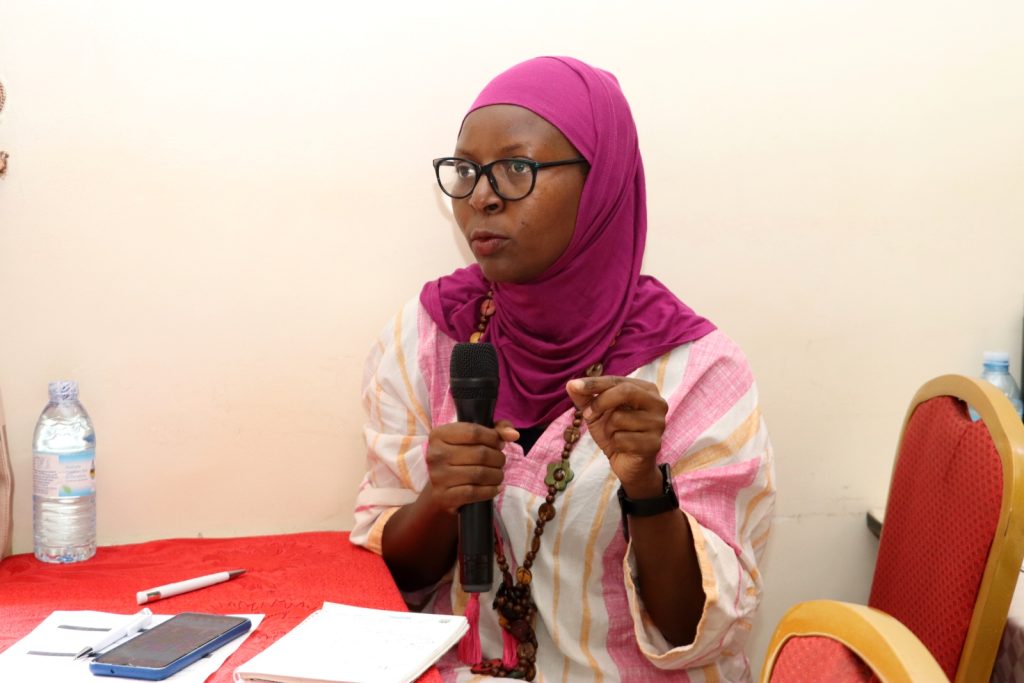
She also emphasized the need to support small-scale innovators, such as those manufacturing briquettes and improved cooking stoves, to reduce indoor pollution. Additionally, she called for strengthened policies for emission control systems in automobiles to reduce cancer and other disease rates.
“If at all government can boost small-scale innovators like assisting briquette manufacturers in marketing their products through sensitization, boost those making improved cooking stoves, we can reduce indoor pollution,” she said. “And if government can strengthen policies for emission control systems in automobiles that can greatly make an impact in reducing the rate of people dying of cancers and other diseases.” she proposed.
Namulumba thanked the participants for their attendance and pledged the district’s commitment to support them in these initiatives, appealing to them to come up with budgets to support those engaged in making alternative energy sources.
Jane Anyango is the Communication Officer EfD Uganda
You may like
-


Celebrating Academic Excellence: CoBAMS Presents 975 Graduands at Mak 76th Graduation Ceremony
-


Mak 76th Graduation Ceremony: CoNAS Presents 16 PhDs & Best Performing Male Student in the Sciences
-


Medical graduates urged to uphold Ethical values
-


CAES Presents Overall Best Performing Student in the Sciences & a Record 28 PhDs at the 76th Graduation Ceremony
-


Graduation marks the next phase of accountability, graduates told
-


Over 9,200 to graduate at Makerere University’s 76th Graduation
Business & Management
Celebrating Academic Excellence: CoBAMS Presents 975 Graduands at Mak 76th Graduation Ceremony
Published
2 days agoon
February 26, 2026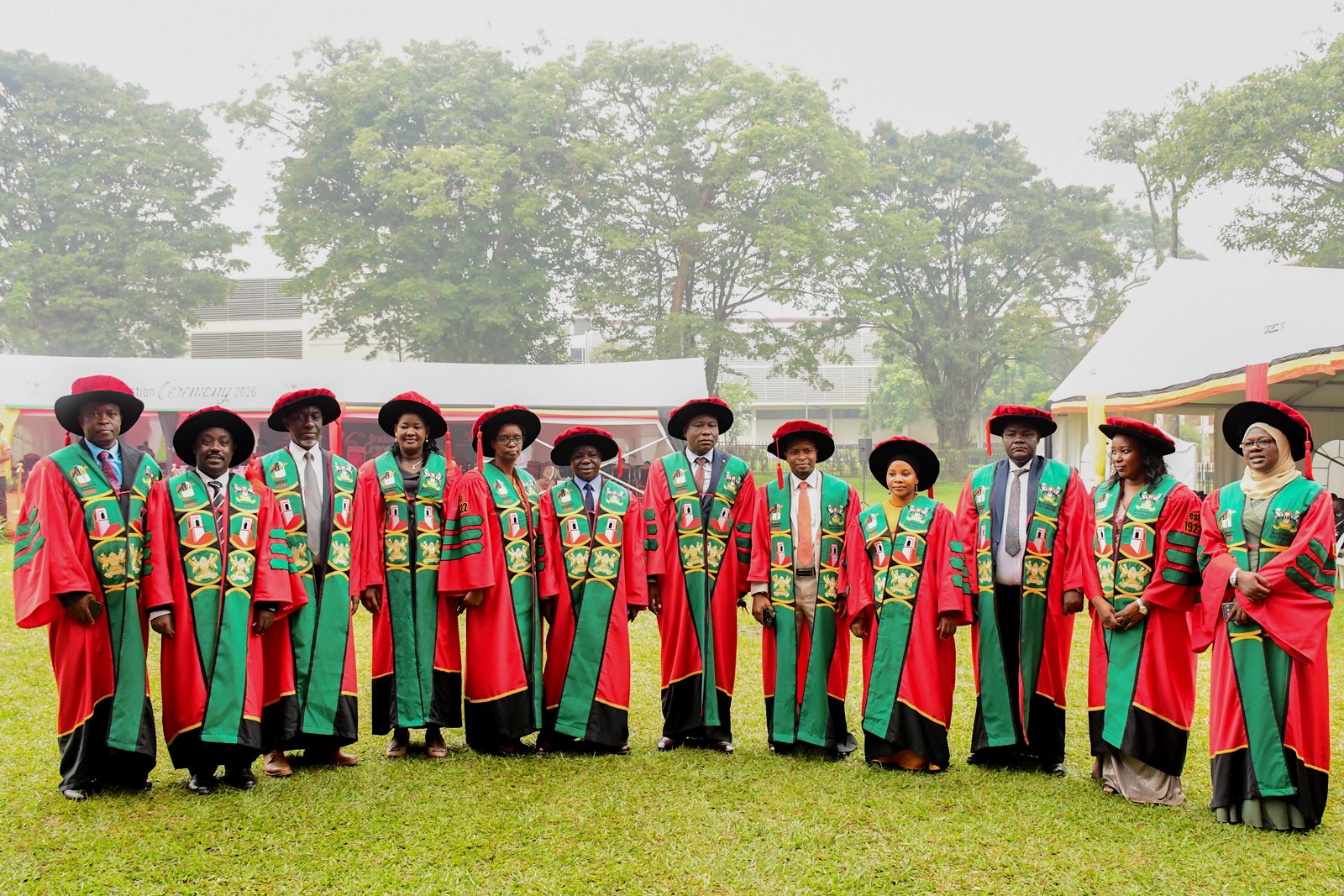
26th February 2026– The third day of Makerere University’s 76th Graduation Ceremony, held on 26th February 2026, underscored the University’s central role in shaping economic thought, business leadership, and public policy in Uganda and beyond. On this day, the College of Business and Management Sciences (CoBAMS) together with Makerere University Business School (MUBS) presented their graduands for the conferment of degrees and award of diplomas.
CoBAMS Graduation Statistics
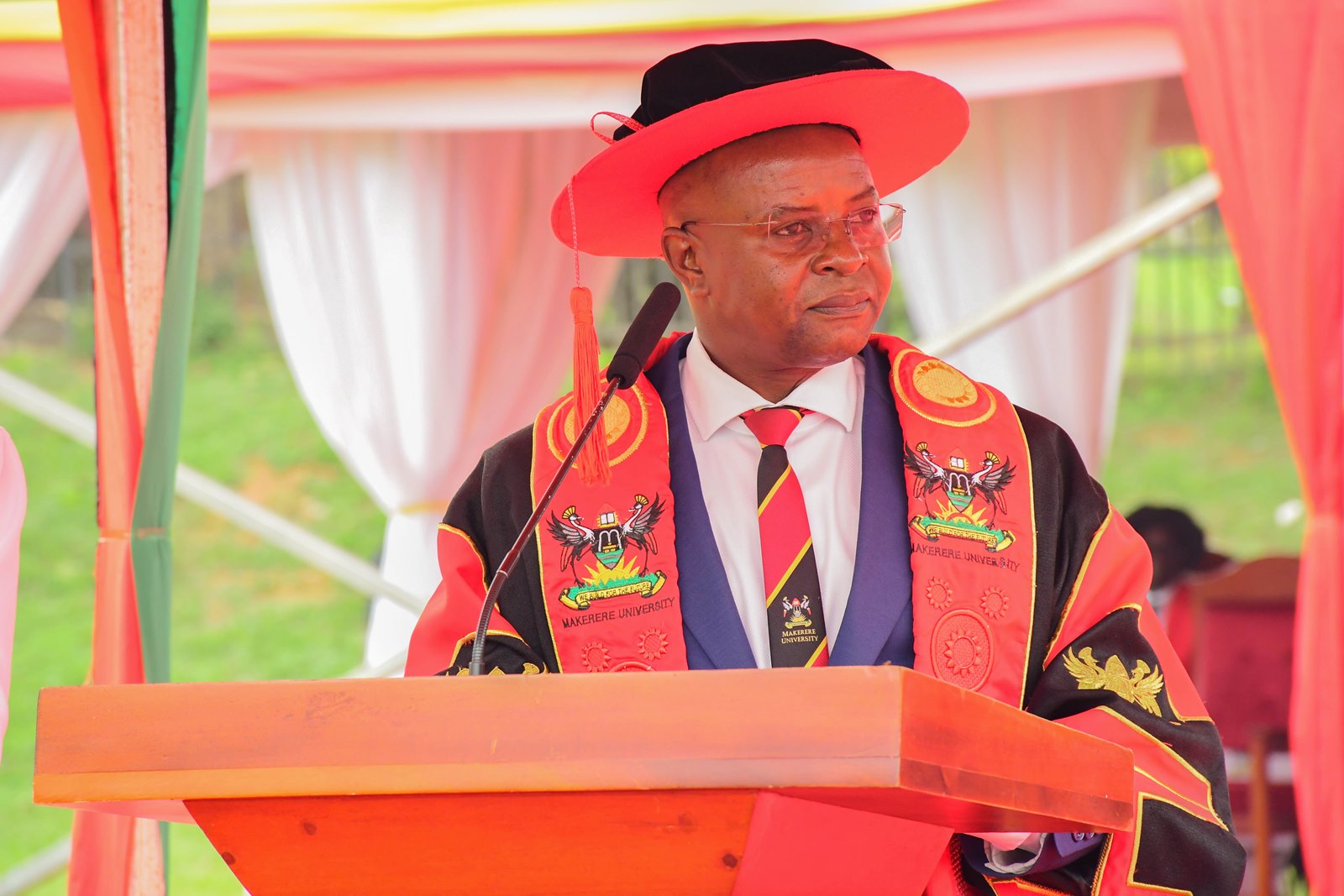
Across the University, a total of 9,295 graduands will be presented during the 76th graduation ceremony (24th to 27th February 2026). The College of Business and Management Sciences presented 975 graduands, comprising 14 Doctor of Philosophy (PhD) degrees, 334 Master’s degrees, 2 Postgraduate Diplomas, and 625 Bachelor’s degrees. This robust academic profile reflects the College’s sustained investment in advanced research, graduate training, and industry-relevant programmes designed to equip graduates with analytical competence, ethical grounding, and leadership capacity required to contribute meaningfully to economic transformation, institutional development, and enterprise growth at national, regional, and global levels.
Prof. Nawangwe emphasized that CoBAMS remains a key pillar in advancing the University’s research agenda. Through strategic partnerships with government ministries, the business community, and the private sector, the College has produced over 60 high-quality research outputs under the CoBAMS Working Paper Series, many of which have been published in internationally recognized peer-reviewed journals. These outputs he said are aligned with the UN Sustainable Development Goals (SDGs), Uganda’s 10-fold National Economic Growth Strategy, and the University’s Strategic Plan, reinforcing CoBAMS’ role in driving evidence-based development.
The Vice Chancellor commended the College for its five dynamic research centres—Entrepreneurship and Innovation; Statistics and Demography; Public Investment Management; the Environment for Development Initiative; and the Centre of Excellence for Africa Climate-Sensitive Macroeconomic Modelling—which collectively form the backbone of the College’s research enterprise. Through these centres, he noted CoBAMS continues to advance high-level scholarship, foster interdisciplinary collaboration, and deepen policy engagement, firmly positioning itself at the forefront of national and regional economic discourse.
In his message to the graduands, Prof. Nawangwe tasked them to become job creators, who are ready to turn challenges into opportunities. He encouraged them to remain proud ambassadors of Makerere University, upholding integrity and excellence, and to utilize their knowledge to transform communities and nations.
“You are all graduating with disciplines that are needed by society. We have equipped you with the knowledge and skills that will make you employable or create your own businesses and employ others. Do not despair. If you cannot find employment, reflect on the immense opportunities around you and raise to the occasion as an entrepreneur,” Prof. Nawangwe stated.
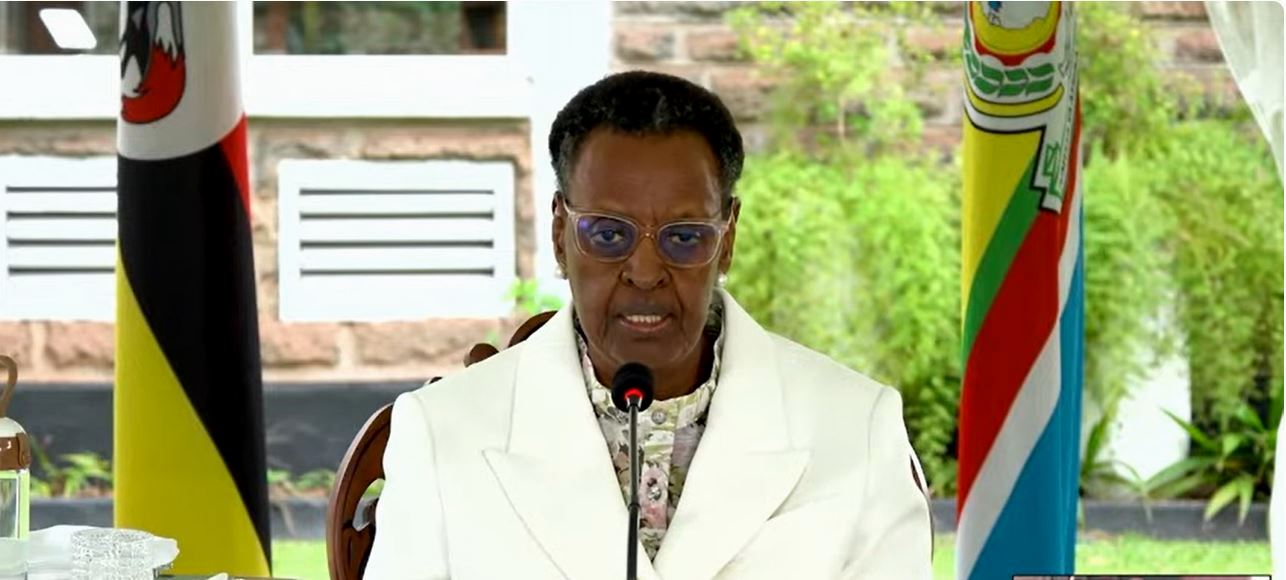
Addressing the congregation, the Guest of Honour, Hon. Janet Kataaha Museveni, First Lady and Minister of Education and Sports commended Makerere University for its pivotal role in transforming lives and shaping Uganda’s future. She congratulated the graduands upon reaching a significant academic milestone and reflected on the broader purpose of higher education in developing both knowledge and character.
She highlighted the success of the Emerging Leaders Programme, launched at Makerere University as a deliberate initiative to cultivate a generation of leaders grounded in values, integrity, and service. Founded on the conviction that higher education must shape both mind and character, the programme equips young people to navigate real-world challenges. She noted that 20 graduates from the inaugural cohort of the Emerging Leaders Programme were being celebrated at the 76th graduation.
“We recognised that our young people face real challenges such as moral decay, violence, addiction, exploitation and sometimes a loss of purpose and direction. The Emerging Leaders Programme was a deliberate commitment to raise a generation of leaders grounded in values, integrity and service to others. Today, 20 graduates represent the early visible fruit of that vision. They have deliberately chosen to build their lives on a foundation of strong moral values and servant leadership,” the Minister said.
The Minister urged graduands to view their achievements not as an end, but as a commissioning. She called upon them to lead with courage, humility, and responsibility, emphasizing that the world needs graduates who embody not just skills and knowledge, but character, integrity, and service. She reminded graduates that as they step into society, they carry the promise of a new Uganda, one where talent, ambition, and knowledge are matched by integrity, purpose, and service,” she exhorted, celebrating the role of higher education in nurturing both excellence and character.
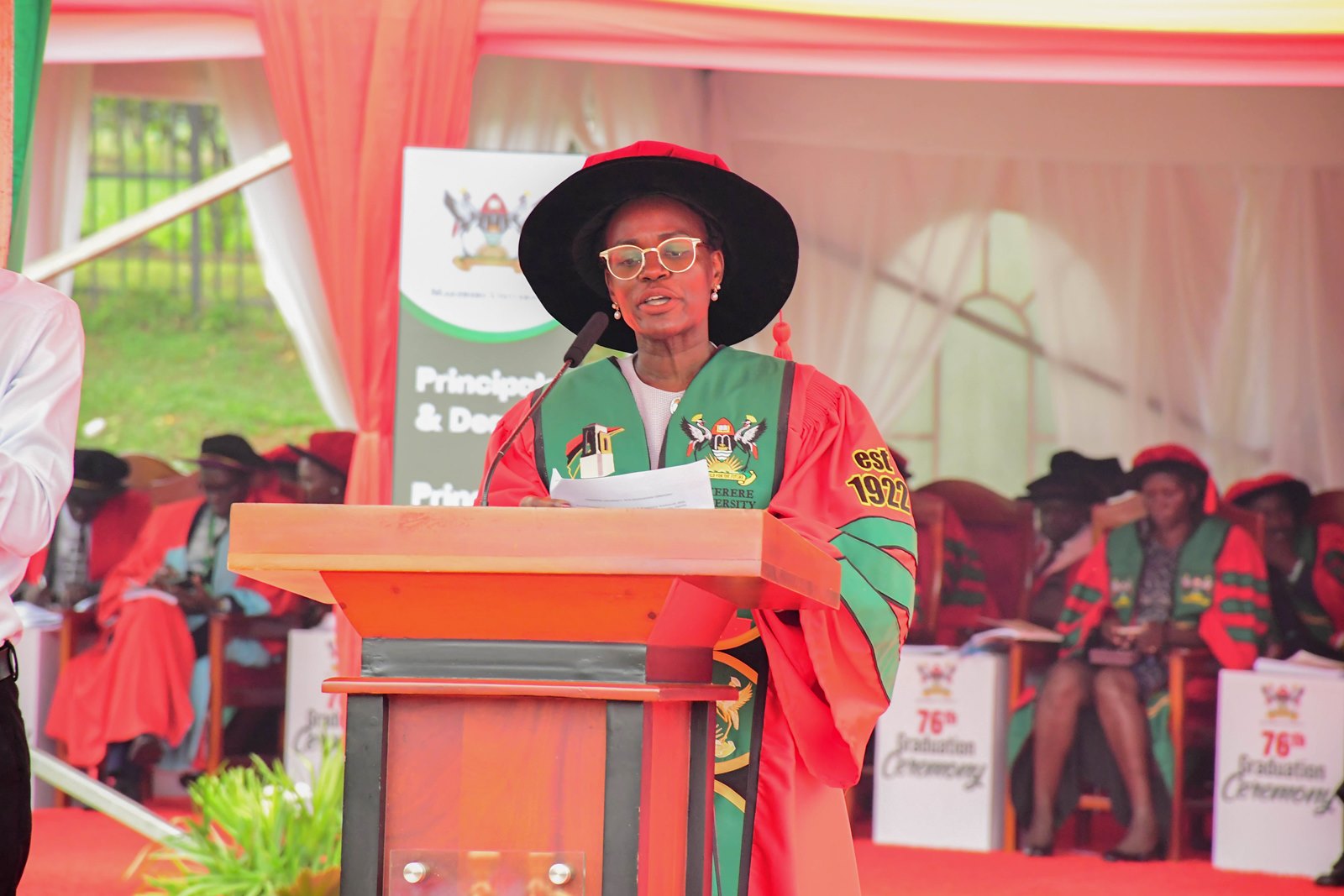
Delivering the commencement address, Dr. Patricia Ojangole, Managing Director of Uganda Development Bank and a proud Makerere University alumnus, lauded the University for equipping graduates with a strong intellectual foundation and the confidence to navigate the complexities of the modern world. She recognized the sacrifices of parents, guardians, and relatives, noting that behind every graduand lies a story of perseverance, encouragement, and unwavering support.
Dr. Ojangole urged the graduands to look beyond traditional employment, highlighting the vast opportunities for entrepreneurship and innovation in today’s digitally connected and globally integrated Uganda. She reminded them that the skills, exposure, and knowledge they possess, position them to create solutions, build enterprises, and drive economic and social transformation.
She emphasized lifelong learning, adaptability, and the cultivation of emotional intelligence and leadership as essential tools for sustained success, noting that the most effective leaders inspire and empower others. Above all, she urged the graduates to guard their integrity, develop strong networks, and remain resilient in the face of setbacks, framing every challenge as an opportunity to strengthen character.
“Learning does not end with this degree. The world of work is constantly evolving—technology advances, markets shift, and customer needs change. Those who stop learning quickly fall behind. Graduates must develop skills in artificial intelligence, data literacy, analytical thinking, forecasting, and strategic planning, while also cultivating emotional intelligence and leadership. These abilities are essential in the 21st-century workplace, where people follow leaders who inspire. Lifelong learning, adaptability, curiosity, and a willingness to embrace change are no longer optional—they are the new currency of corporate and business success,” she submitted.
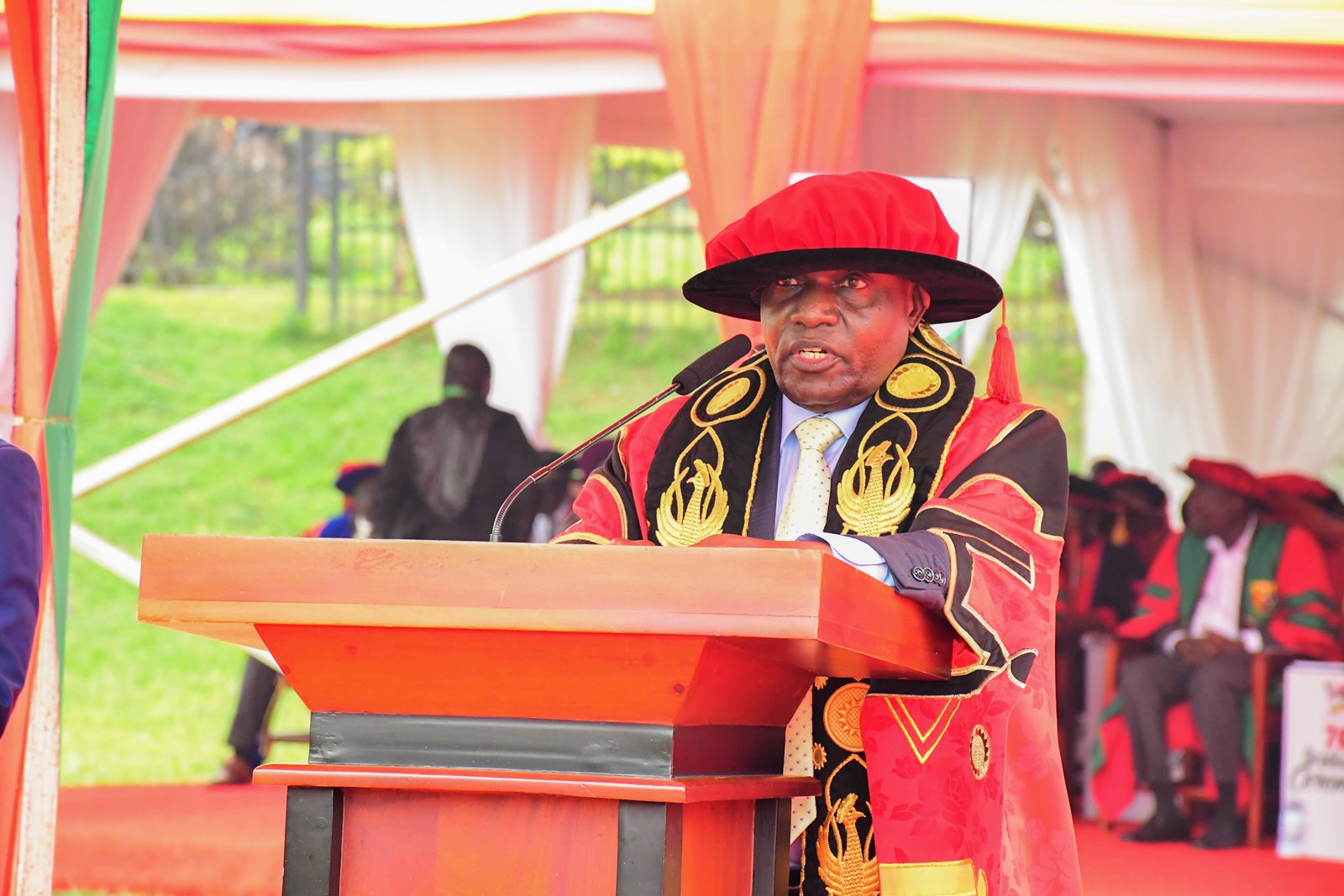
The Makerere University Chancellor, Dr. Crispus Kiyonga urged graduates to view their time at Makerere not only as an academic journey, but as an opportunity to engage with the world around them. He encouraged them to identify opportunities within their communities and the nation at large, highlighting that while some may secure government or private sector jobs, others will need to create their own paths through entrepreneurship.
“Beyond pursuing your courses, seize the opportunities at the university to broaden your knowledge of the world, your country, and the communities in which you live. Be attentive to the opportunities around you—those you can leverage to engage in meaningful and viable activities that bring prosperity,” the Chancellor advised.
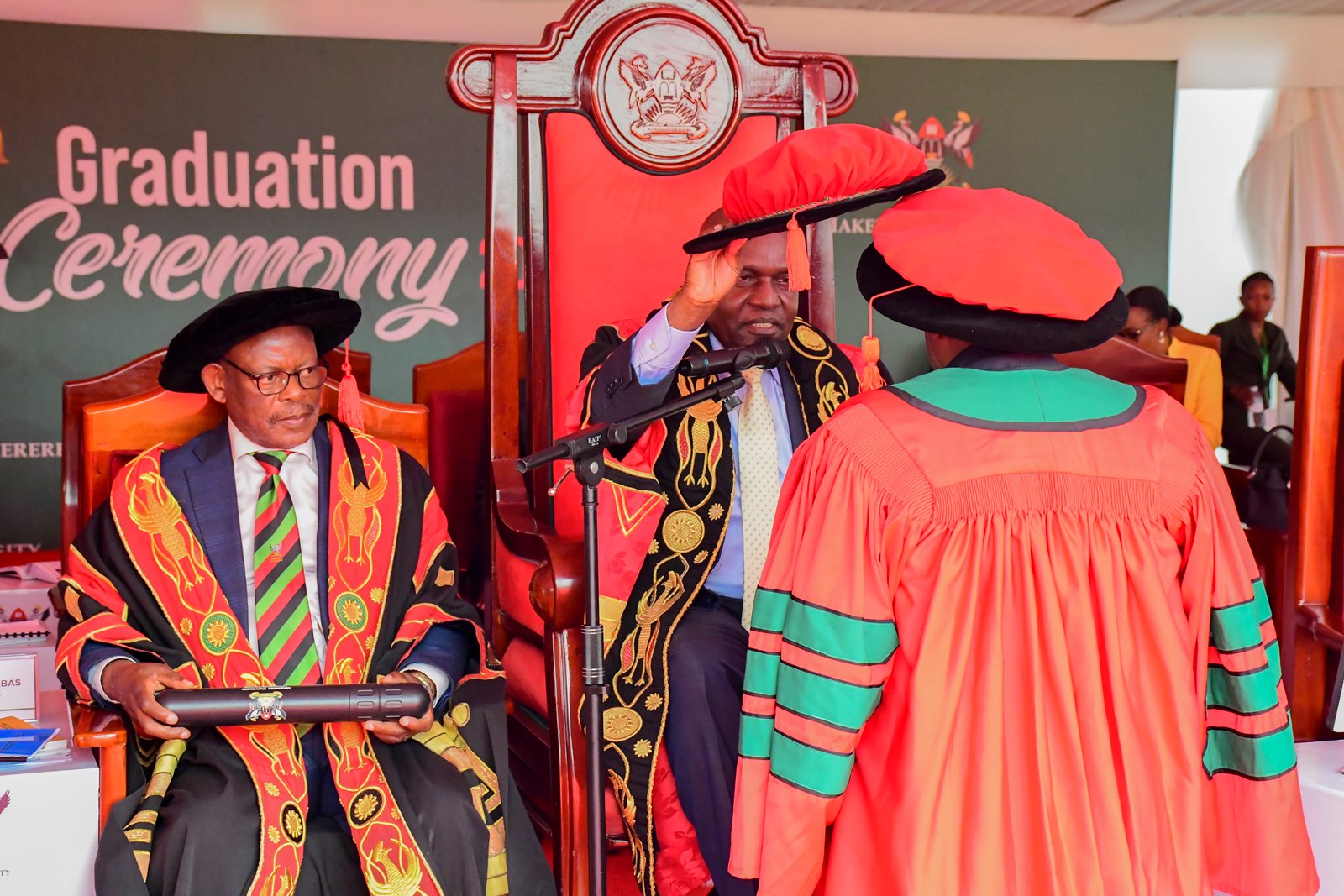
A key highlight of the day was the conferment of the Doctor of Letters (Honoris Causa), of Makerere University upon Dr. Japheth Buleetwa Katto, recognizing him as an Honorary Scholar of Makerere University. A distinguished professional with remarkable achievements, Dr. Katto has made significant contributions to Uganda, the East African region, and beyond, particularly in advancing the accountancy discipline and strengthening the capital markets industry. His work has played a transformative role in Uganda’s social and economic development while also influencing the accountancy profession on a global scale.
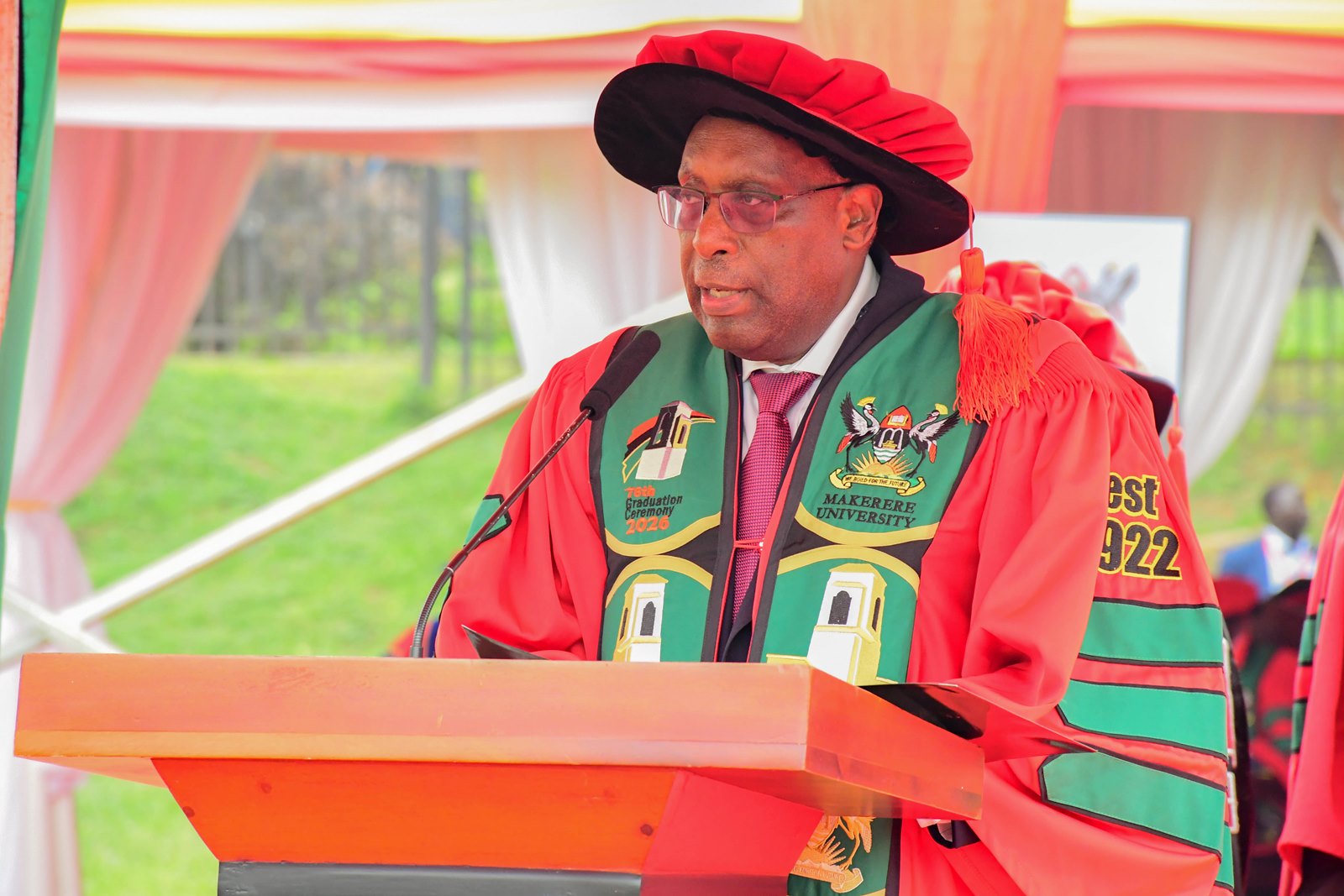
Accepting the Honorary Doctorate Doctorate, Mr. Japheth Buleetwa Katto expressed deep gratitude to Makerere University and those who supported his journey. Reflecting on fifty years in corporate governance and finance, he emphasized a key lesson: integrity, diligence, and ethical leadership are always noticed, and the rewards of sowing excellence will inevitably follow, even if it takes decades.
“This recognition comes as a surprise and brings with it an important lesson, I wish to share with everyone here: people are always watching. They notice when you choose integrity over shortcuts, when you champion good governance even when it is unpopular. They see not only the good, but also the bad and the ugly. We must never forget the eternal law of the harvest: we reap what we sow. If you sow excellence, diligence, and ethics, the harvest—though it may take decades—will always find you,” Dr. Katto said.
Addressing the graduands, Mr. Japheth Buleetwa Katto urged them to embrace the unexpected, recognize that integrity is their greatest strength, and harness the power of networking. He reflected on his own journey, crediting teachers, mentors, colleagues, and family for their support, and encouraged the new graduates to always strive to make a positive impact in everything they do.
Business & Management
Parliament, MoFPD and Makerere Launch Five-Day Training on Integrated Macroeconomic Modelling to Strengthen Fiscal Oversight
Published
3 days agoon
February 25, 2026By
Mak Editor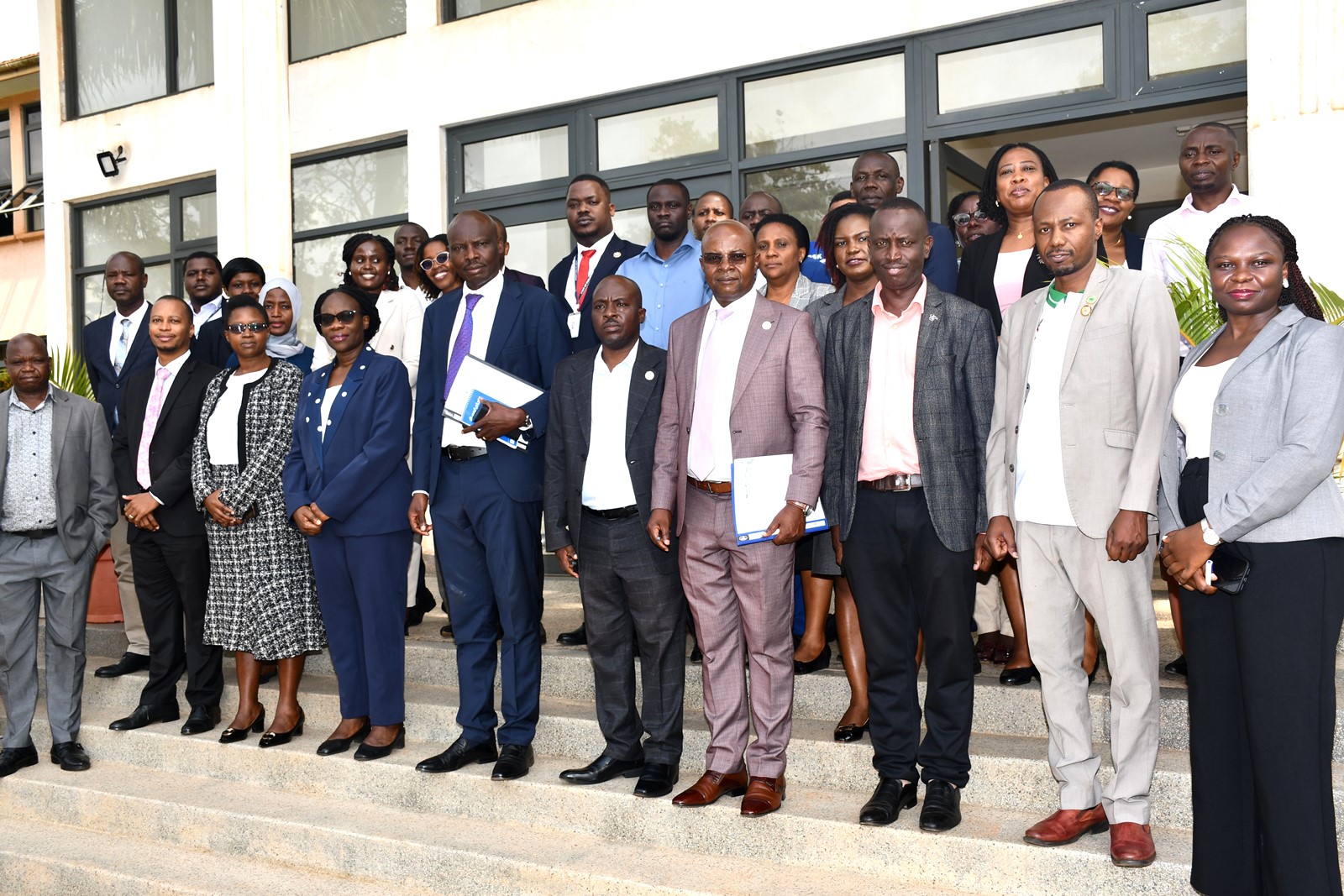
By Wilber Tumutegyereize
In a significant step toward strengthening fiscal governance and enhancing evidence-based decision-making, the Parliament of Uganda, in collaboration with the Ministry of Finance, Planning and Economic Development and Makerere University, has launched a five-day intensive training programme on Integrated Macroeconomic Modelling.
The training brings together staff of the Parliamentary Budget Office (PBO) for a comprehensive capacity-building programme designed to deepen their analytical expertise in assessing national budgets, evaluating fiscal policy options, and generating independent, data-driven advice for Members of Parliament. The initiative forms part of a broader institutional strategy to reinforce Parliament’s oversight role and ensure that national budgeting processes are aligned with Uganda’s development priorities as articulated in the National Development Plan and Parliament’s Strategic Plan.
Strengthening Evidence-Based Fiscal Oversight
Speaking at the opening session on behalf of the Manager of the Public Investment Management (PIM) Centre of Excellence at Makerere University, Dr. Peter Babyenda emphasized that the increasing complexity of Uganda’s fiscal environment demands stronger analytical capacity within Parliament.
“This training comes at a critical time when the demands on Parliament to undertake rigorous scrutiny of fiscal and economic policy have never been greater,” Dr. Babyenda stated.
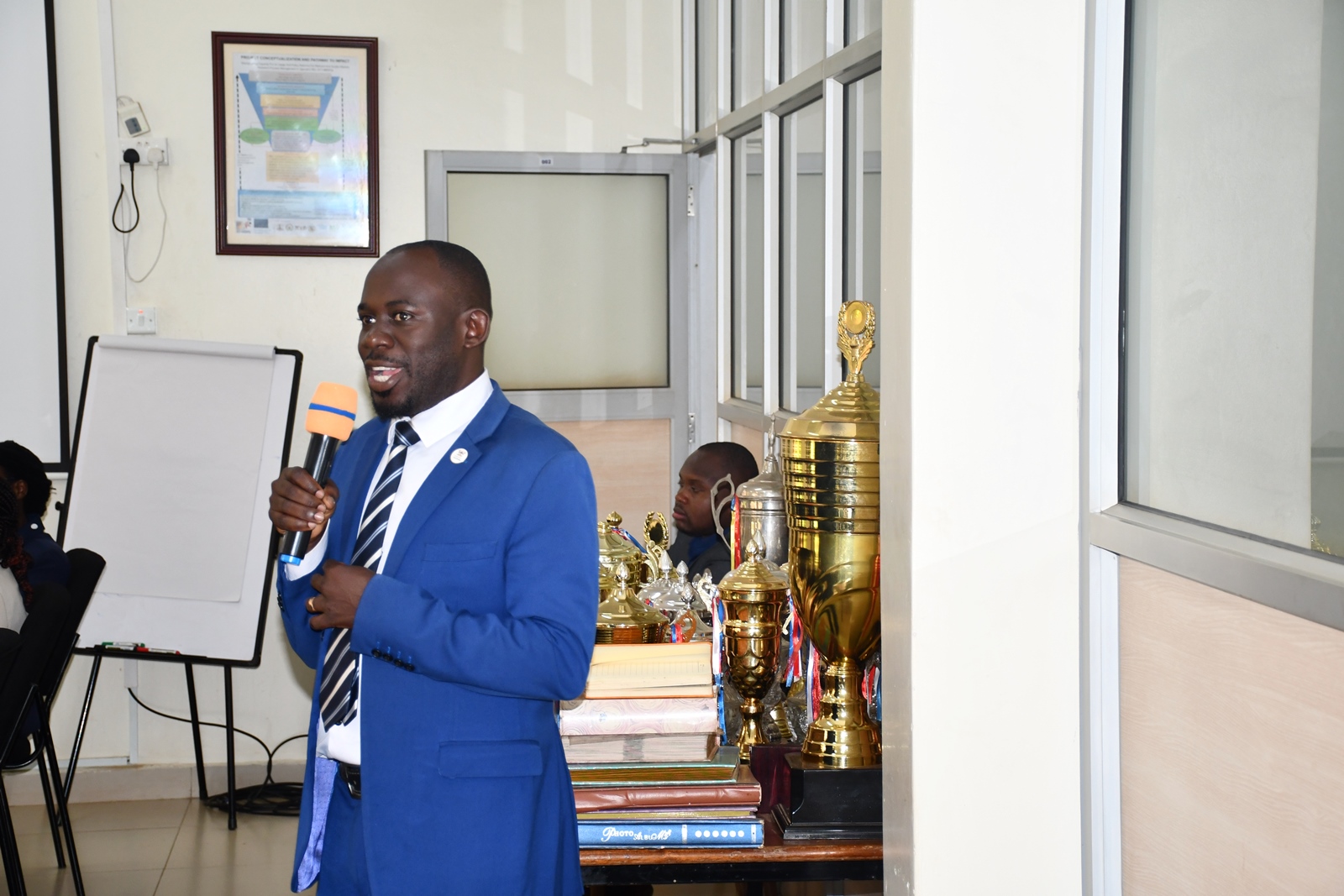
He noted that Parliament’s constitutional mandate—to legislate, appropriate public funds, and oversee government expenditure—requires objective, independent, and technically sound economic analysis. The Parliamentary Budget Office plays a central role in fulfilling this mandate by providing Members of Parliament with timely assessments of revenue projections, expenditure allocations, public debt sustainability, and macroeconomic trends.
Dr. Babyenda explained that the Government’s Integrated Macroeconomic Model provides a holistic framework for understanding the interconnections between economic growth, fiscal policy, public investment, inflation, debt dynamics, and household welfare. By incorporating this model into parliamentary analysis, the PBO will be better positioned to simulate alternative policy scenarios and assess their short- and long-term implications.
Institutional Priorities
Mr. Henry Waiswa, Deputy Clerk to Parliament in charge of Corporate Affairs, contextualized the training within Parliament’s broader institutional reform agenda. He underscored Parliament’s constitutional responsibility to legislate, allocate resources, and oversee the management of public finances.
“Since its establishment under the Budget Act and its anchoring under the Administration of Parliament Act, the Parliamentary Budget Office has become a cornerstone of evidence-based fiscal oversight,” Mr. Waiswa noted.
He observed that Uganda’s public financial management landscape has become increasingly complex, with evolving fiscal pressures, development financing needs, and global economic uncertainties. In such an environment, Parliament must not only examine headline budget figures but also anticipate the macroeconomic and distributional effects of policy decisions on households, businesses, and vulnerable communities.
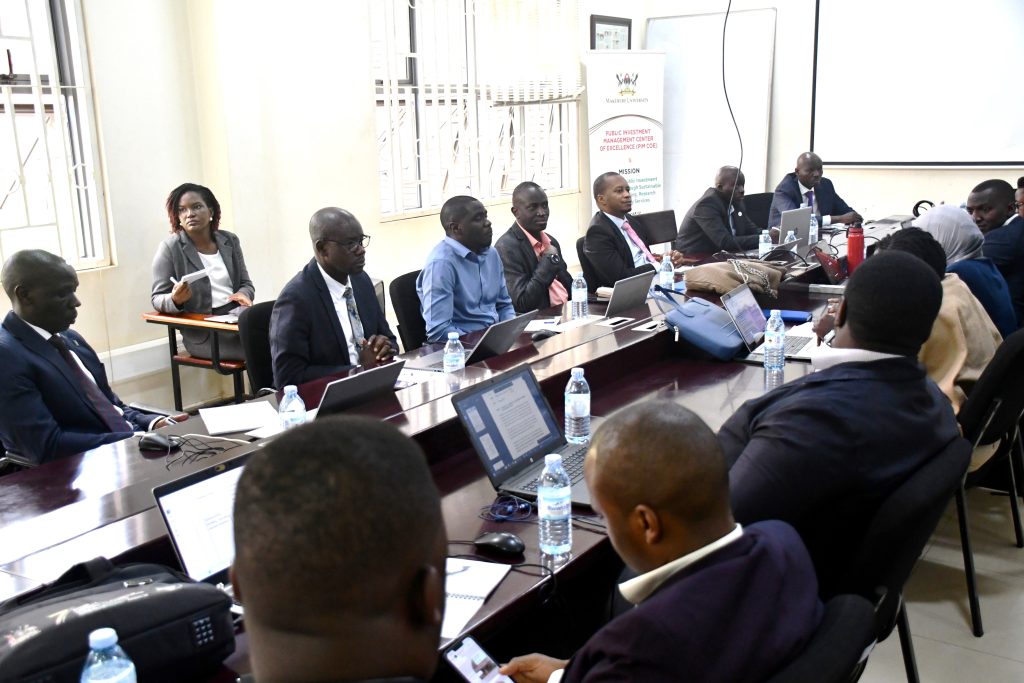
Mr. Waiswa further expressed appreciation to the Ministry of Finance, Makerere University, and the Resource Enhancement and Accountability Programme (REAP) for their technical and financial support in designing and facilitating the training.
Academic Expertise and Analytical Rigor
Professor Edward Bbaale, Director of the PIM Centre of Excellence at Makerere University, highlighted the critical role of academia in strengthening public sector institutions. He emphasized that collaboration between Parliament, the Ministry of Finance, and Makerere University reflects a shared commitment to improving the quality of fiscal governance.
“When our key public institutions work together, we enhance the credibility of economic management and ensure that policy decisions are informed by rigorous analysis,” Professor Bbaale said.
He explained that Integrated Macroeconomic Models combine key economic indicators, such as Gross Domestic Product (GDP), government revenue and expenditure, inflation, debt, investment, and external balances, into a unified analytical framework. These models enable analysts to conduct “what-if” simulations, test policy assumptions, and evaluate trade-offs between competing fiscal priorities.
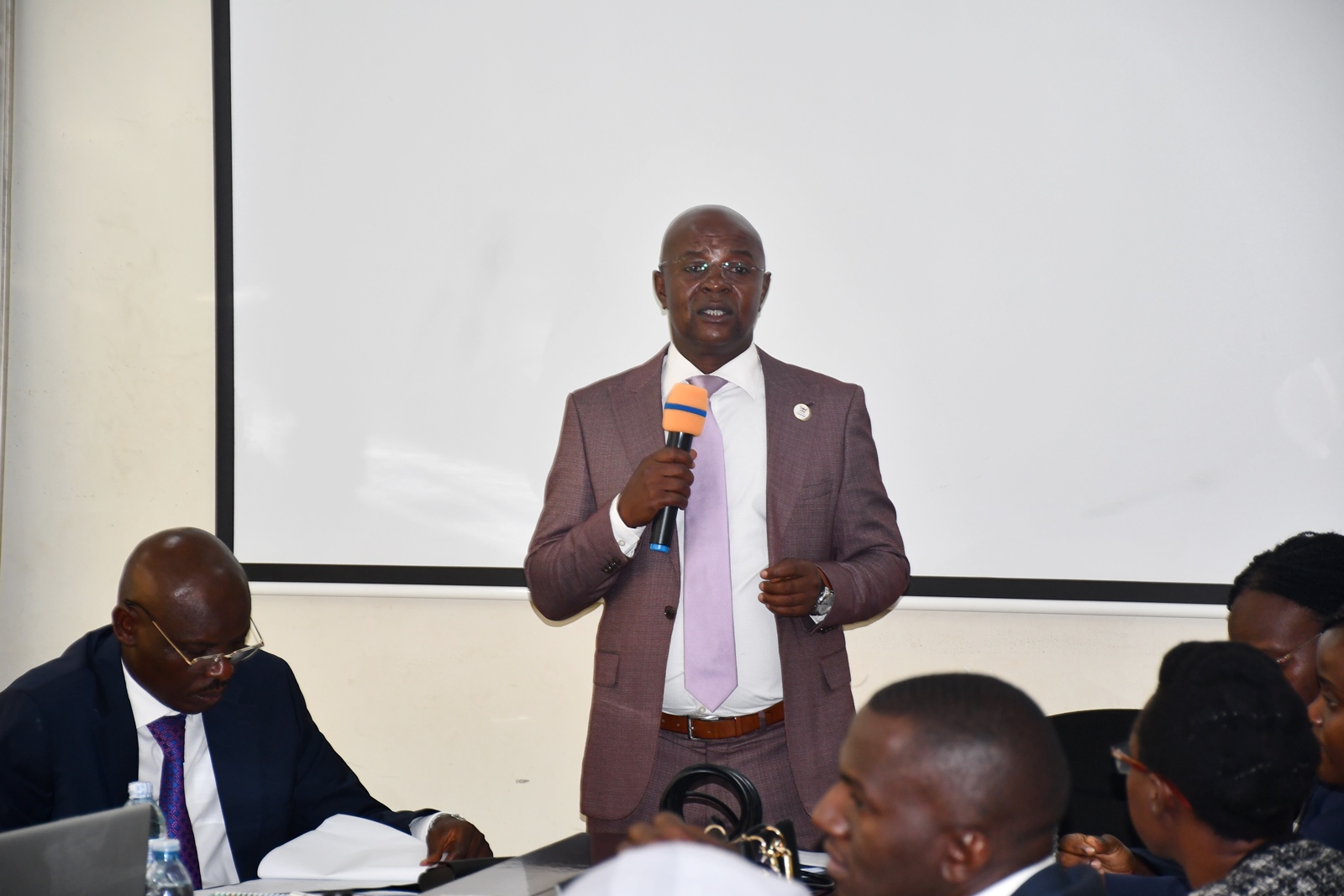
Professor Bbaale urged participants to fully utilize the five-day training to strengthen their technical proficiency and contribute meaningfully to Parliament’s oversight function.
Practical Application and Long-Term Impact
The training programme emphasizes hands-on learning, allowing participants to work directly with the Integrated Macroeconomic Model. Through practical exercises, PBO staff will learn how to:
- Simulate alternative fiscal and macroeconomic scenarios.
- Assess revenue and expenditure implications of policy proposals.
- Evaluate public debt sustainability and fiscal risks.
- Examine distributional impacts on poverty, inequality, and household welfare.
- Develop evidence-based policy briefs for Members of Parliament.
Dr. Babyenda reiterated that the value of the training lies in its practical application.
“The ultimate measure of success will be how effectively participants apply these tools to real parliamentary analysis,” he said. “It is through this application that Parliament can maintain rigorous oversight over public finances.”
A Strategic Investment in Institutional Capacity
By institutionalizing the use of Integrated Macroeconomic Modelling within the Parliamentary Budget Office, Uganda is making a strategic investment in sustainable institutional capacity. The initiative ensures that parliamentary analysts are trained using the same analytical frameworks applied in national fiscal planning, thereby reinforcing both technical quality and independence in budget scrutiny.
As Uganda navigates evolving economic challenges, the strengthened capacity of the PBO will enable Parliament to critically evaluate budget proposals, anticipate policy outcomes, and provide informed, transparent, and accountable oversight of public resources.
The five-day Integrated Macroeconomic Modelling training thus represents a pivotal milestone in advancing Uganda’s commitment to sound fiscal management, democratic governance, and evidence-based policymaking.
Business & Management
Climate variability found to shape malaria trends in Yumbe District
Published
1 week agoon
February 20, 2026
A new study led by scientists from Makerere University School of Public Health has demonstrated that short-term climate variability plays a significant role in malaria transmission in Yumbe District, West Nile sub-region of Uganda. The study, Climate variability and malaria incidence trends in Yumbe District, West Nile Sub-region of Uganda (2017–2021), by Lesley Rose Ninsiima, Rogers Musiitwa, Zaitune Nanyunja, James Muleme, Chris Maasaba, Twahiri Anule, and David Musoke, was published in February 2026 in Malaria Journal through Springer Nature Link.
Today, malaria remains a major public health burden in Uganda, where environmental conditions support sustained transmission. Despite persistent outbreaks in northern Uganda, limited local evidence exists on how the changing climate patterns influence malaria trends. This study addressed that gap by examining five years of malaria surveillance data alongside district-level rainfall and temperature records.

Using routine health facility reports from the District Health Information System (DHIS) and climate data from the Uganda National Meteorological Authority (UNMA), the researchers applied time-series analysis to assess seasonal patterns and delayed climate effects on malaria incidence. Between 2017 and 2021, Yumbe District recorded 2,066,711 malaria cases, with transmission showing clear seasonal peaks between May and July and September and November, aligning with rainy periods.
Their analysis showed that rainfall was the strongest climatic driver of malaria transmission. Increased rainfall was associated with higher malaria cases approximately one month later, reflecting the time needed for mosquito breeding and transmission cycles. In contrast, higher minimum temperatures were linked to reduced malaria incidence, while maximum temperature showed no significant effect. Together, rainfall and minimum temperature explained a substantial proportion of variation in malaria cases, highlighting malaria’s sensitivity to short-term climate fluctuations.
The study findings underscore the value of integrating climate information into malaria surveillance and early warning systems to anticipate transmission peaks and guide timely interventions. Strengthening collaboration between public health and meteorological sectors, the researchers argue, could improve preparedness and support climate-informed malaria control strategies in high-burden settings.
Further details: https://link.springer.com/article/10.1186/s12936-026-05824-0
Trending
-

 Humanities & Social Sciences5 days ago
Humanities & Social Sciences5 days agoMeet Najjuka Whitney, The Girl Who Missed Law and Found Her Voice
-

 Health1 week ago
Health1 week agoUganda has until 2030 to end Open Defecation as Ntaro’s PhD Examines Kabale’s Progress
-

 General4 days ago
General4 days ago76th Graduation Highlights
-

 Agriculture & Environment1 week ago
Agriculture & Environment1 week agoUganda Martyrs Namugongo Students Turn Organic Waste into Soap in an Innovative School Project on Sustainable Waste Management
-

 General1 week ago
General1 week agoMastercard Foundation Scholars embrace and honour their rich cultural diversity
